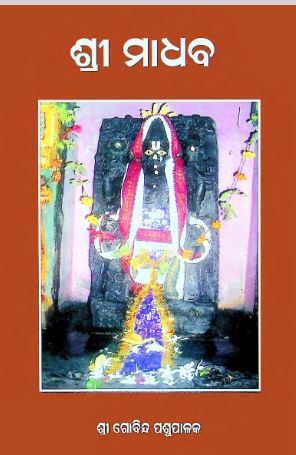Published in 2017, “Sri Madhaba” by Gobind Pasupalak is a seminal contribution to Odia literature that has captivated readers and scholars alike with its rich tapestry of cultural, historical, and legendary narratives. The book is a meticulous collection of essays that delve into various dimensions of Odisha’s heritage, offering a kaleidoscopic view of its past and present.
Each essay in the book serves as a window into the soul of Odisha, reflecting Pasupalak’s deep understanding and passion for his native land. The sub-essays are thoughtfully curated, covering a wide range of topics from the intricate customs and traditions of Odisha to its vibrant festivals and folklore. Pasupalak’s eloquent prose brings these subjects to life, providing readers with a nuanced understanding of the region’s culture. His narrative style is both engaging and informative, making complex topics accessible to a broad audience.
One of the standout features of “Sri Madhaba” is its detailed historical accounts. Pasupalak meticulously charts the evolution of Odisha through the ages, from ancient times to the modern era. He examines the influence of various dynasties, including the Kalinga and Gajapati rulers, on the region’s development. The essays delve into the impact of historical events such as the Kalinga War and the spread of Buddhism, offering fresh insights into their significance.
Pasupalak’s analysis is backed by extensive research, evidenced by his references to historical texts, inscriptions, and archaeological findings. His ability to weave these elements into a coherent narrative is commendable, making the historical sections of the book both informative and compelling.
Legends and mythology form the backbone of Odisha’s cultural identity, and Pasupalak’s essays pay homage to this rich tradition. He retells beloved Odia legends with a sense of reverence and authenticity, capturing the essence of stories that have been passed down through generations. From the tales of Lord Jagannath to the legend of King Ashoka’s transformation, each narrative is rendered with a deep respect for its origins.
Pasupalak also explores lesser-known myths, shedding light on the diverse and eclectic nature of Odisha’s folklore. His essays reveal how these legends continue to influence contemporary culture, from art and literature to daily life and societal values.
One of the most evocative essays in “Sri Madhaba” is the one dedicated to the Prachi River. Pasupalak’s portrayal of Prachi goes beyond its geographical significance; it emerges as a symbol of Odisha’s enduring spirit. He traces the river’s journey through time, highlighting its role in the region’s religious and cultural history.
Pasupalak examines the ancient temples that line Prachi’s banks, narrating their stories and the architectural marvels they represent. His essay on Prachi serves as an ode to an ancient river that continues to flow through the heart of Odisha, both literally and metaphorically.
“Sri Madhaba” by Gobind Pasupalak is more than just a collection of essays; it is a cultural treasure trove that offers readers a profound understanding of Odisha’s heritage. Pasupalak’s eloquent writing, combined with his meticulous research and deep passion for his subject, makes this book a must-read for anyone interested in the history, legends, and cultural essence of Odisha. Through “Sri Madhaba,” Pasupalak has ensured that the stories, traditions, and spirit of Odisha will continue to inspire and educate generations to come.
Books Info
| Books name | Sri Madhaba/ଶ୍ରୀ ମାଧବ |
| Author | Gobind Pasupalak |
| No Of pages | 32 |
| Publisher | Page Maker Publication |
| Publication | 2017 |
| Printed At | Page Maker Computer Services |
| Distributor | NA |

